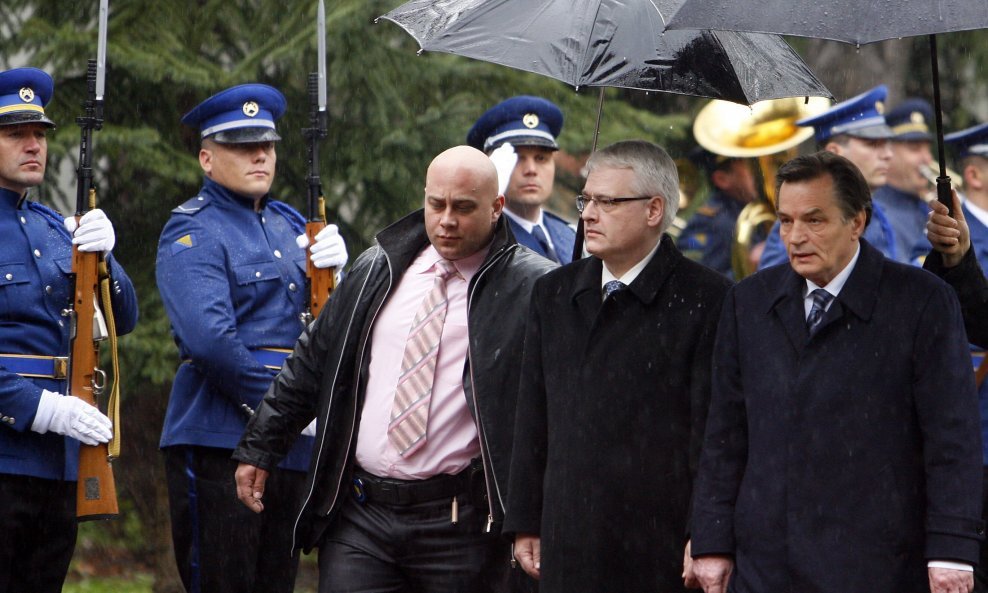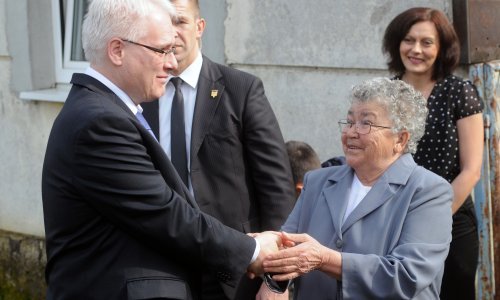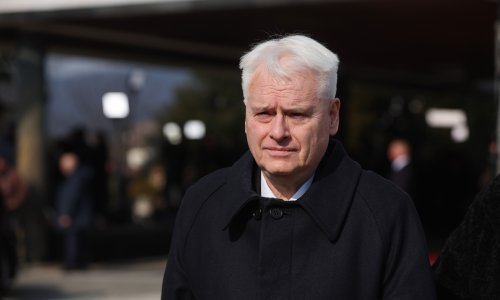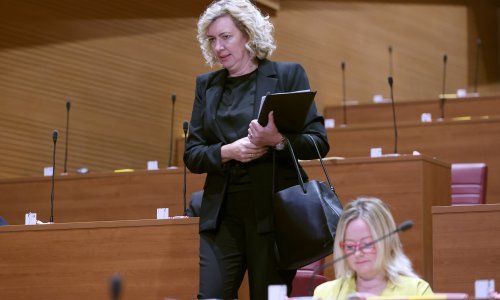Croatian President Ivo Josipovic has apologised for Croatia's participation in the policy which he said tried to divide Bosnia-Herzegovina in the 1990s, and called on the entire region to pursue close cooperation in all fields.
Addressing Bosnia's national parliament on Wednesday during his official visit to Sarajevo, the Croatian president extended condolences and sympathy for every victim of the 1992-1995 war in Bosnia-Herzegovina, emphasising that every life lost was a loss for everybody.
He said he was therefore travelling to Ahmici and Krizancevo Selo in the Lasva Valley on Thursday to pay his respects to victims "whose only sin was that they belonged to the other side and were different".
The Bosnian Croat Defence Council (HVO) forces killed over 100 Bosnian Muslim (Bosniak) villagers in April 1993, and the predominately Bosniak Army of Bosnia-Herzegovina killed local Croats in the village of Krizancevo Selo in December that year.
"Only the law and justice can help purge our peoples of the evil and recriminations about crimes and ensure that the evil will not happen ever again," Josipovic said in parliament. Apart from the Bosnian lawmakers, also in attendance were Bosnian top officials and the diplomatic corps.
Josipovic said that "due to their ignorance, malignancy and insanity" the policies in the 1990s believed that the solution for Bosnia-Herzegovina was its division. However, such policies planted the seed of evil not only in Bosnia-Herzegovina but also in countries from which those polices originated.
The consequence for Bosnia-Herzegovina was that "the tissue of this specific social and cultural entity based on multiethnicity," was torn up, the Croatian president said in his speech.
"I deeply regret that the Republic of Croatia contributed to it with its policy in the 1990s. I am deeply sorry that this policy contributed to the suffering of people and to the divisions which still affect us," the Croatian head of state said.
He said that the new era had come in in which the mistakes from the past times should be recognised and a new course should be set bringing the lasting peace, stability and prosperity to the region.
Josipovic said a common European future is the best solution, adding that he was confident his country would soon become a European Union member. He underlined Croatia's support to the EU membership bid of its neighbours.
"The European Bosnia-Herzegovina is a vital national interest of Croatia," Josipovic said.
He said the three constituent peoples in Bosnia must discover a formula for their joint life on their own and that others could only help them in those efforts but could not decide for them.
Croatia is particularly interested in the success of negotiations on Bosnia's constitutional changes, as Zagreb is bound by the constitution to provide for Croats living in Bosnia, whose number was cut by half in the last war, he added.
Before giving the speech in the national parliament, Josipovic held talks with Bosnia's tripartite presidency.
After the meeting with the presidency's members, Josipovic told the press he had arrived in Sarajevo to "reaffirm Croatia's wish to be a permanent, stable and proven partner of Bosnia-Herzegovina, notably in foreign affairs' goals which the two countries share."
He said those goals are the membership of NATO and the EU.
The stability of every individual country and the region in its entirety is the joint strategic goal, which all of us should work on, he said reiterating that this generation of politicians had no right to put off solutions to problems.
The Bosnian presidency's chairman Haris Silajdzic thanked Josipovic for Croatia's support to Bosnia-Herzegovina, and added that the time had ripened for solving outstanding issues.
"Some issues has been outstanding for too long," Silajdzic said citing the identification of the border on the sea, property issues and the status of Croatia's seaport of Ploce in this context.
Silajdzic urged the governments of the two countries to expedite the solution to those issues.
Confirming in his address to the press that he would travel to Ahmici and Krizancevo Selo on Thursday to pay tribute to victims in those villages from the last war, Josipovic said that this did not mean that he ignored the victims on the Serb side.
"For me, victims are victims regardless of their ethnicity, and criminals are criminals regardless of their ethnicity," Josipovic said adding that he would certainly visit the execution sites of Bosnian Serbs.




























